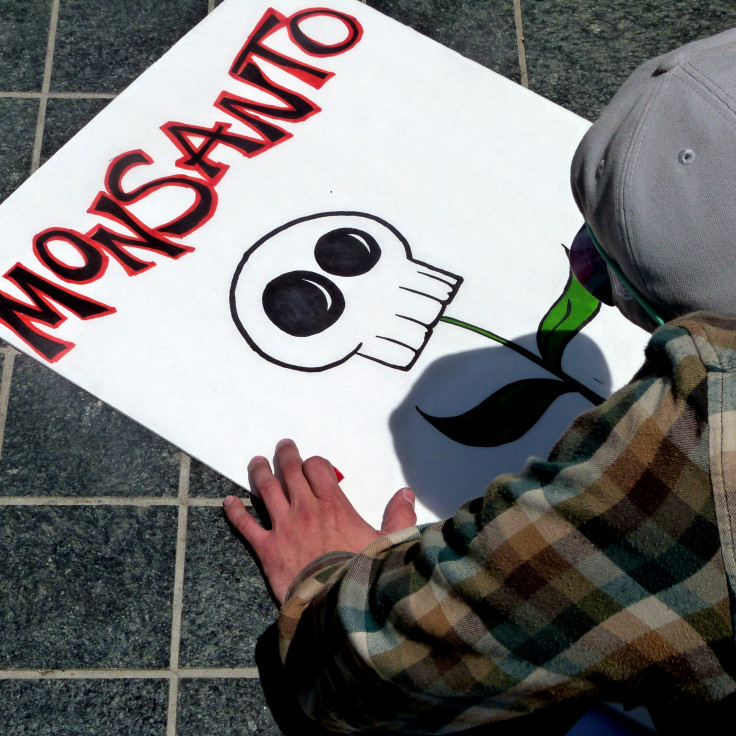Monsanto And DuPont Donate Millions To Anti-GMO Labeling: Why Money Might Win The War For Genetically Engineered Foods

The agricultural biotechnology company Monsanto has recently donated $5.1 million dollars to oppose labeling genetically modified organisms (GMO), as recorded by votersedge.org. Monsanto falls approximately $2.6 million short of the highest donator — the Grocery Manufacturers Association, which has spent $7.6 million dollars on the anti-labeling campaign.
As the world’s largest seed producer, Monsanto labeling GMOs would significantly hurt its profits. It has spent more than $2.4 million fighting against many organic and natural food companies. If this fight is purely based on numbers, large biotech companies like Monsanto, DuPont, Dow Chemical Co, and Bayer CropScience might win.
“There’s no way we can compete with the resources of Monsanto, Dow and DuPont,” said Trudy Bialic, a spokeswoman for PCC Natural Markets, to Bloomberg News. “This is a David and Goliath fight.”
The total is now $18.1 million for the non-GMO labeling campaign.
Even though many countries have already begun labeling GMO foods, including much of Europe, Brazil, and Australia, the question as to why the U.S. doesn't label GMOs is on the minds of many food activists. Researchers believe that labeling foods with GMOs will only increase paranoia and hysteria in the American people. “The American Association for the Advancement of Science, the World Health Organization and the exceptionally vigilant European Union agree that GMOs are just as safe as other foods,” reports Scientific American.
Other reports have contradicting information. In recent news, GMOs have been liked to higher cancer rates and birth defects in Argentina; millions of South Americans could be affected by the pesticides, reports the Associated Press.
“Now doctors are warning that uncontrolled pesticide applications could be the cause of growing health problems among the 12 million people who live in the South American nation's vast farm belt,” the Associated Press reports.
If there is a solid link between Monsanto’s pesticides and the many diagnosed cancers in Argentina, then this could harm the company's profits. The company had a significant loss in the fourth quarter as shares fell down 1.4 percent.
Even with all of this backlash, the fight to label is still going strong in the United States. So far, $9.1 million dollars has been raised for labeling GMOs. Last November, California voters rejected proposition 37, which would require companies to label all foods that are made from GMOs. However, this past Friday, a motion was filed by Los Angeles City Councilmen Paul Koretz and Mitch O’Farrell to stop GMO seeds and plants within the city. If this does happen, then Los Angeles could become the largest GMO-free zone. Pending details on the motion are still developing.
It is a matter of choice for many Americans. The ability to be able to choose between GMO and non-GMO foods is the core of the issue. According to a New York Times poll conducted this past July, 93 percent of Americans feel that foods should be labeled and identified.



























